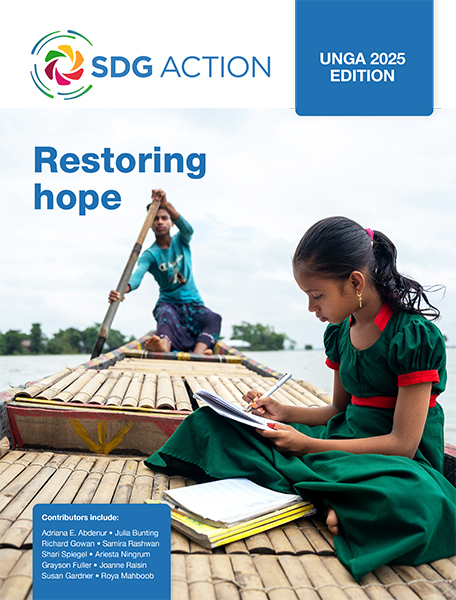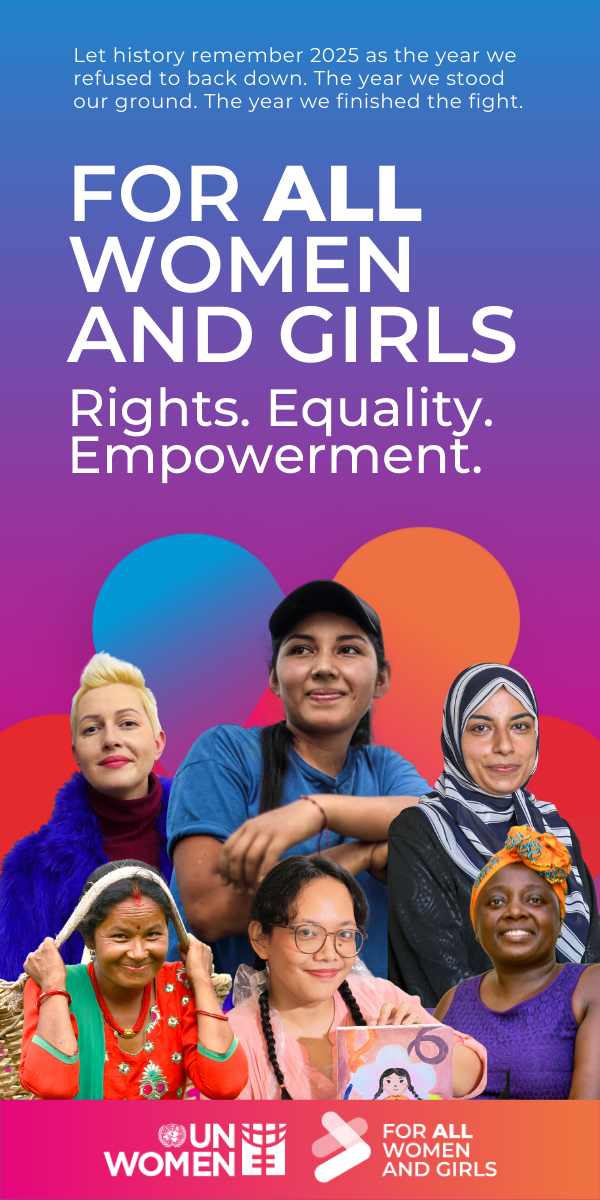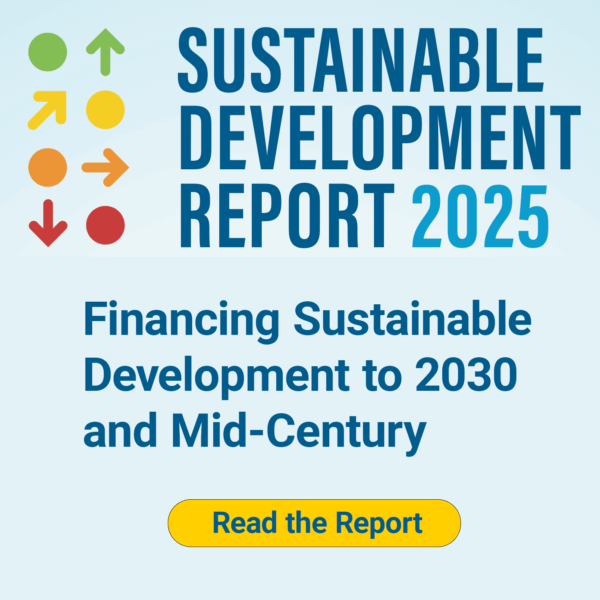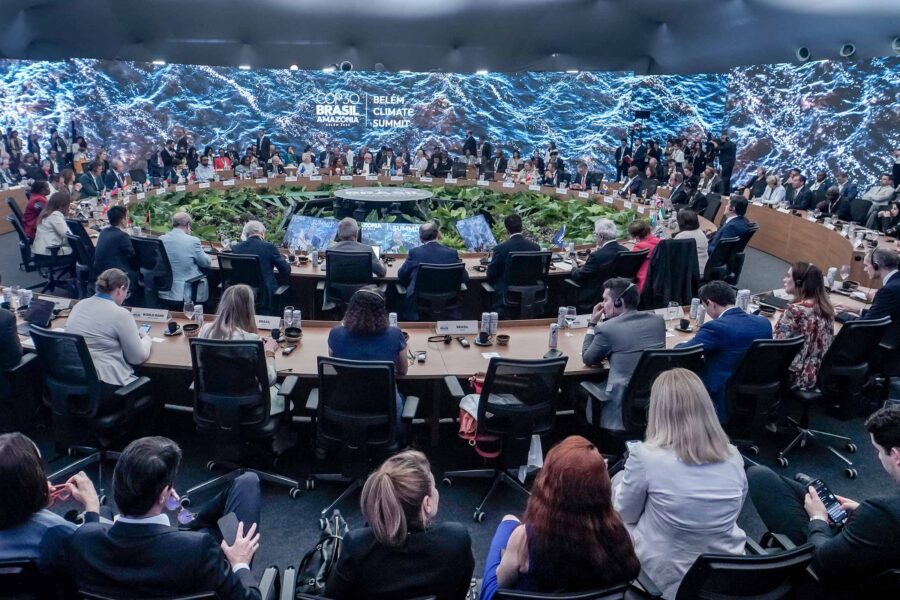Creating a financial system for all: taking forward the Sevilla Commitment
The world is far off track to meet the SDGs, with declining aid, rising debt burdens, and a global financial system that often works against the countries that need it most. The recent Seville conference offers a chance to reset – producing a new global commitment and a platform for action to reform how development is financed
Financing — Global
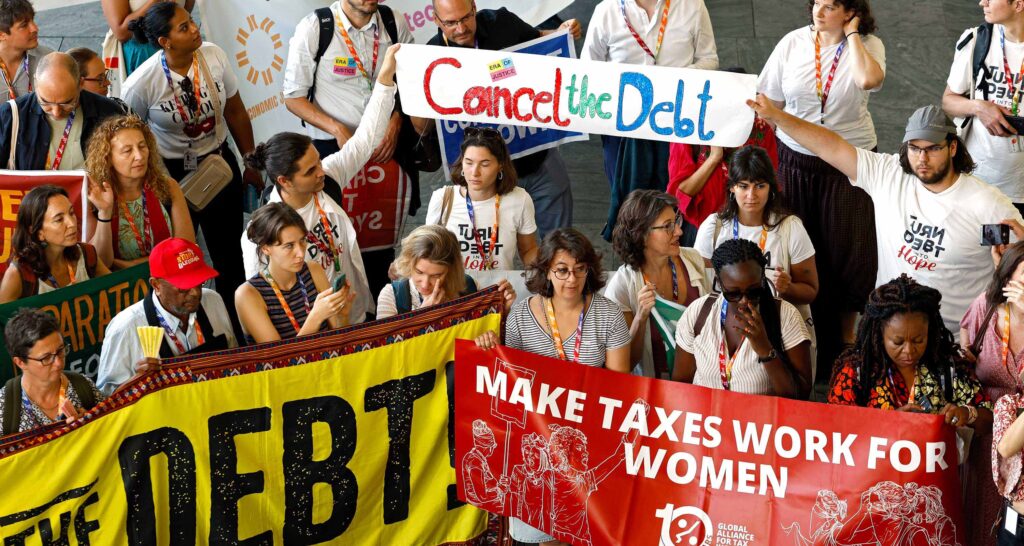
The Fourth International Conference on Financing for Development – in Seville, Spain in July 2025 – took place against a challenging global backdrop of geopolitical tensions, dramatically falling aid, rising protectionism, and macroeconomic uncertainty. This is a far cry from 2015, when world leaders last met to agree to a global financing framework for development, in Ethiopia. That year was a banner year for multilateralism, with the adoption of the 2030 Agenda, the Paris Climate Agreement, and the Addis Ababa Action Agenda reflecting a shared sense of optimism about what multilateral action can achieve.
Today, we live in a very different world.
The global economy is decelerating, with significant downside risks, particularly if trade tensions further escalate. Donors are retreating from aid commitments: official development assistance fell by more than 9% in 2024 in real terms, and if current predictions for 2025 are accurate, global aid levels may fall by an additional 17% or more, with dire consequences in the poorest countries. Many developing countries are weighed down by heavy debt service burdens: in 2024, more than 1.1 billion people lived in countries that dedicated a fifth or more of their government revenue to servicing external debt. Unless we change course, more than 600 million people will still live in extreme poverty in 2030.
One international meeting alone cannot overcome such profound challenges. Macroeconomic uncertainty, fiscal constraints, and a retreat from global cooperation by some will continue to cloud prospects for development financing and the Sustainable Development Goals (SDGs). But the Seville conference presented an opportunity to chart a way forward, and generate hope that the international community can still unite to tackle global challenges.
It did just that.
The outcome document, the Sevilla Commitment, which sets out a renewed global framework for financing for development, was adopted by consensus on day one of the conference. While the United States neither joined this consensus nor attended, other countries viewed the conference not as a conclusion, but rather a starting point for implementation. This was reflected in the 130 initiatives that coalitions of countries, international organizations, and other partners put forward in the Sevilla Platform for Action (SPA). These initiatives include concrete actions to implement the Sevilla Commitment across three strategic areas:
- to catalyze investment
- to address debt challenges
- to reform financial system architecture to create a fairer and more effective system
Catalyzing investment
To close the USD 4 trillion SDG financing gap in developing countries, the commitment aims to:
- triple multilateral development banks (MDBs) lending
- double support to countries to achieve at least a 15% tax-to-GDP ratio
- leverage private investment
But rather than repeating empty slogans of “turning billions to trillions,” the commitment focuses on both the quantity and quality of finance. Investment should align SDG impact with country needs, priorities, and industrialization strategies. Blended finance deals, which use public funds to leverage private investment, should be structured so that risks and returns are shared fairly between the public and private sector, with public resources benefiting proportionately from successful projects. In support of these goals, coalitions of countries and institutions announced SPA initiatives to expand blended finance using new modalities that strengthen SDG impact and tally with national priorities.
Other SPA initiatives to increase financing for development include:
- capacity support to countries to mobilize tax revenue
- a “solidarity levy” on premium flyers (first and business-class tickets, and private jets)
- mechanisms to increase local currency lending by MDBs
- new instruments to finance crisis responses
Addressing debt challenges
The commitment includes a package of actions to address the sustainable development debt crisis across four areas:
- debt management and crisis prevention
- lowering the cost of borrowing
- the debt restructuring architecture
- debt sustainability and credit analysis
To support crisis prevention, the commitment calls for:
- the UN Secretary-General to convene a working group to create new guiding principles on responsible borrowing and lending
- a single, global debt data registry, housed in the World Bank
- promotion of state-contingent clauses in official lending, along with solutions to help incorporate state-contingent clauses into commercial debt contracts, including through instruments like re-insurance
In support of the commitment to promote state-contingent clauses, a coalition of countries and MDBs launched a “debt pause clause alliance” SPA initiative, whose proponents commit to include such state-contingent clauses (to suspend debt service payments during crises) in their lending.
To lower the cost of borrowing, the Sevilla Commitment calls for a debt facility, to be housed at an international financial institution, to help countries manage debt service burdens, offer credit enhancements and facilitate debt swaps to help lower the cost of borrowing. This would be supported by a “Debt Swaps for Development Hub” SPA initiative led by Spain and the World Bank.
The commitment also calls for inclusive discussions on debt architecture to strengthen the voices of debtor countries, most of whom are currently excluded from decision-making. This includes establishing a platform for borrowing countries, supported by an SPA initiative, and launching an intergovernmental process on debt at the United Nations. The Sevilla Commitment also establishes a recurring high-level dialogue between governments, regulators, and credit rating agencies.
Creating a fairer and more effective financial system
Commitments to support reform of the international financial and development cooperation architecture include:
- enhancing developing countries’ voice in international financial institutions – for example, by aiming to increase basic votes in the International Monetary Fund
- increasing access to emergency funding to better protect countries during shocks and crises – for example, through a new Special Drawing Rights playbook
- reforming the development cooperation architecture:
- at the national level (through inclusive, country-led, national coordination platforms that build on national plans and engage all relevant actors, including national development banks, to strengthen country ownership)
- at the global level (with a coordinating role for the United Nations)
SPA initiatives to support these aims include:
- a coalition of countries and institutions to launch a new generation of country-led and owned platforms to bring together ongoing efforts
- a coalition of countries to include measures of vulnerability beyond GDP in all financing operations
Cautious optimism
With around 15,000 people in attendance, including around 50 heads of state and government, and more than 200 ministers, the conference sent a strong signal that multilateralism can still bring countries and stakeholders together to advance shared solutions to global challenges.
Many of the discussions across the conference’s various meetings, forums, and side events were characterized by a sense of hope and cautious optimism – that global aspirations are still worth pursuing, and that the time to mobilize financing for the SDGs is now.
Featured in:
UNGA 2025 edition: Restoring hope
An effective multilateral response is needed for an ever increasing number of crises. At the same time, the UN – the heart of the multilateral system for 80 years – is under attack from nations trying to defund and disempower it. Radical reform is clearly needed. Whatever form that takes, it should be guided by and designed to support the SDGs.
This edition considers the impacts of inequality and conflict, and explores ways to build a fairer, safer future through education, technology, economic development and global partnerships.
Authors include Adriana E. Abdenur, Julia Bunting, Richard Gowan, Samira Rashwan, Shari Spiegel, Ariesta Ningrum, Grayson Fuller, Joanne Raisin, Susan Gardner and Roya Mahboob.
Publication date: 22 September 2025

